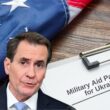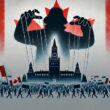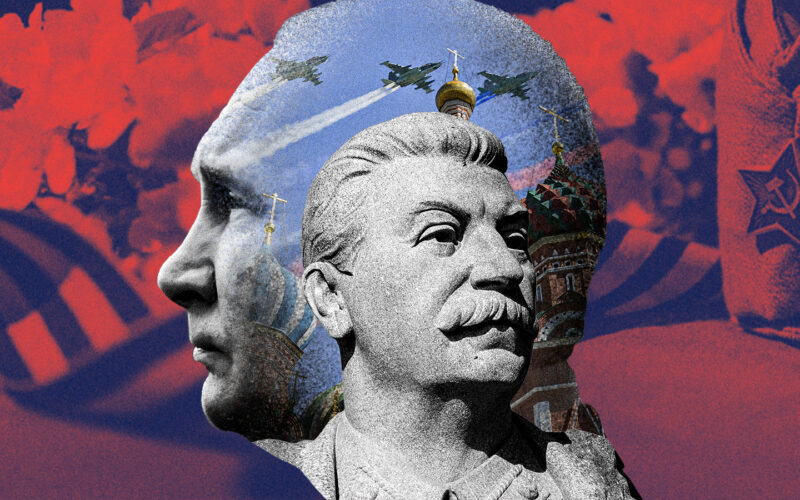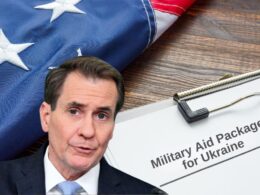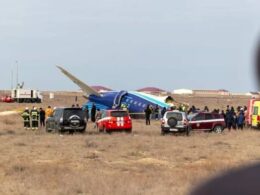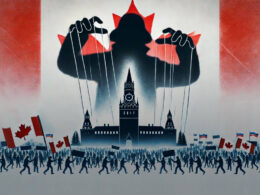The anniversary of the end of World War II in Europe is always a politically-charged day in Berlin. Russia’s invasion of Ukraine, which falsely claims to be a fight against fascism, gives new urgency to remembrance.
78 years ago, on May 8, 1945, in Berlin, in the building of today’s Berlin-Karlshorst Museum, Wilhelm Keitel, the leader of the Wehrmacht signed the act of surrender of the German Wehrmacht, also known as the German Instrument of Surrender.

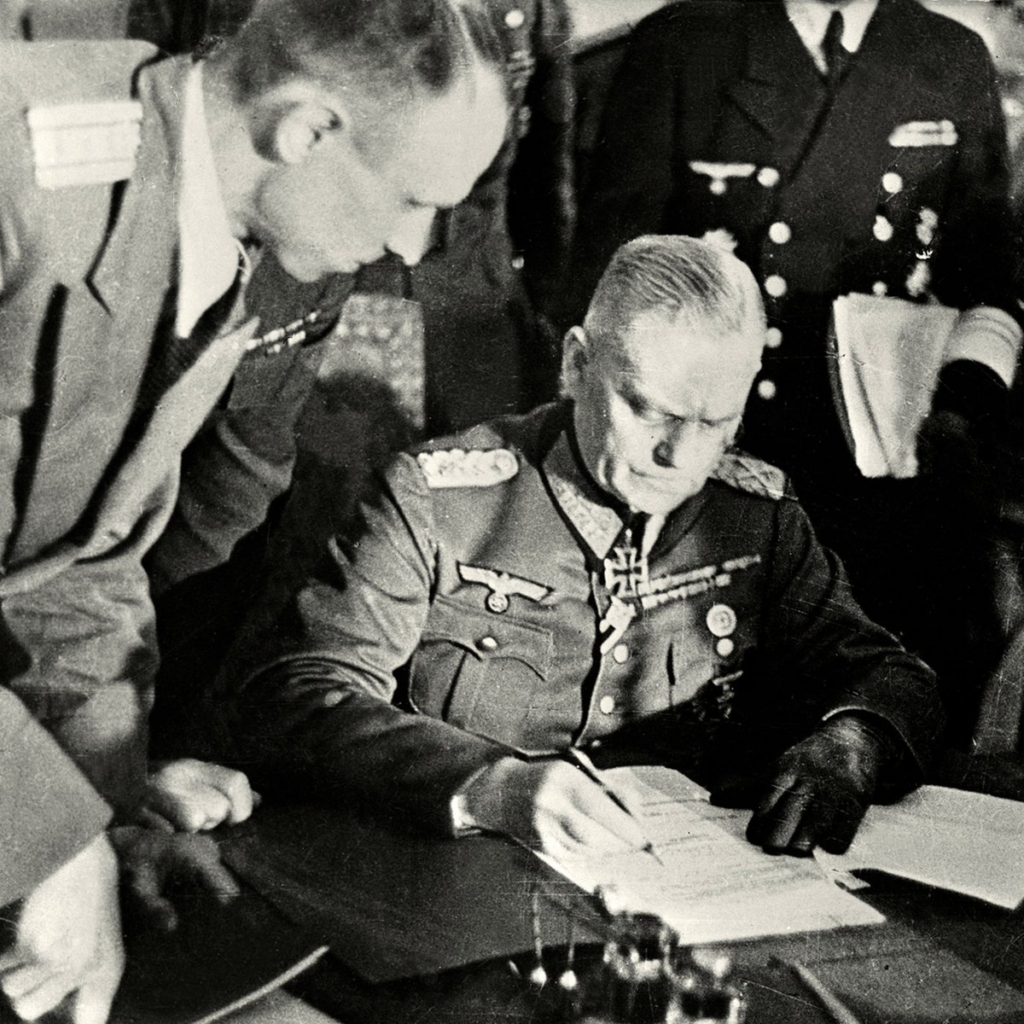
May 8th has always been an ordinary day in Germany. Even this year, Berlin citizens, who went to work as usual in the morning, were reminded on the radio about “Liberation Day”. The day was renamed in honor of the landmark speech of German President Richard von Weizsäcker, delivered 38 years ago, in which he called for celebrating May 8 not only as a day of defeat and surrender, but also as a day of liberation and the beginning of democracy.
According to politicians’ idea, on this day, West Germany symbolically threw off the shackles of the dictatorial regime, embarking on the path of democratic reforms. After the reunification of Germany, this narrative became common to both parts of the once-divided country.
Berlin still bears the scars of this division, as well as the architectural signs of the presence of the allies. In the former West Berlin, there are several memorials to the US pilots who supplied the city’s inhabitants with food from the air during the Soviet blockade, and an American museum. However, not far from the Brandenburg Gate, a Soviet memorial was also built with a monument on which the coat of arms of the USSR was attached and two T-34 tanks were installed on the sides. On the territory of the former capital of the GDR – East Berlin – there are two Soviet memorials – in the Bush district in the Schonholzer Heide park and in Treptower Park.

For many years after German reunification, many Germans, both Eastern and Western, visited these memorials on May 8. In the early 1990s, a huge number of ethnic Germans and Jews from the republics of the Soviet Union moved to Berlin. Migration growth continued until the mid-2000s. Former citizens of the USSR made up the bulk of those who continued to visit memorials on May 9.
After the annexation of Crimea, the Russian Embassy in Germany appropriated the right to commemorate the victories of the Soviet Union and the Red Army. Employees of the huge embassy complex on Unter den Linden became frequent guests at all events in the capital on May 8 and 9. In recent years before the pandemic, the embassy hosted festivities with a chic table and a field kitchen, to which various German politicians were invited. Diplomats from the Central Asian republics of the former USSR could also be seen among the audience. There were no Ukrainians and Belarusians there.
The numerous presence of Russians and Ukrainians in the German capital introduces particular tension into the public atmosphere in Berlin before May 8 and 9. In the spring of last year, long before these days, discussions about possible clashes between immigrants from Ukraine and Russia were going on with excitement in the blogosphere. The sudden rally of hundreds of cars with Russian flags through the streets of Berlin, organized, as it became known later, at the suggestion of the Kremlin, shocked Berliners.

Before memorable days in 2022, the police banned Ukrainian and Russian flags – fearing “bloody clashes” in the streets. This ban was hotly debated in the German press and in both diasporas.
This year, the police decided to follow the same path and ban all flags and symbols from events at the Tiergarten memorials, Treptower Park and Schönholzer Heide. However, the Ukrainian NGO Vitsche challenged this decision in an administrative court and was successful. The court allowed to display Ukrainian flags and the police refused to appeal the court decision.
On the evening of May 6, unknown people filed a complaint against the ban on Russian flags. Walking along the narrow path of justice, the city administrative court also allowed Russian flags during an event in front of the memorial in the Tiergarten district. However, this time the police challenged this decision in the Supreme Administrative Court and were satisfied. Neither Russian, nor Soviet, nor St. George flags and ribbons were allowed. The court found correct the police prediction that “Russian symbols, in view of the ongoing full-scale invasion of Ukraine, can be used to call for violence”. Indeed, in the current context, these symbols could be understood as a manifestation of sympathy for the conduct of the war, the press release of the court emphasizes. “In particular, the intensification of targeted shelling of Ukrainian cities and the civilian population today leads to a further aggravation of the conflict,” – therefore, it is impossible to separate the Day of Remembrance for the victims of World War II and the resumption of hostilities in Ukraine, the court stressed.
Through the action of an independent judiciary, a dispute was resolved about the possibility of waving Russian flags and St. George ribbons in Berlin. Previously, the “The Immortal Regiments” marched with portraits of relatives directly from the Brandenburg Gate, and “participants” of the solemn celebration of Victory Day were brought to the Russian embassy from all over Germany. The Russians walked around Unter den Linden in the form of the Red Army and sang famous war songs to the harmonica. East Germans looked at it with accustomed eyes, and the West – with indulgence.

This time, on May 9, several hundred people with portraits marched along Unter den Linden to the memorial in the Tiergarten area. The police let people into the monument in small groups to avoid incidents, and everyone went through a search. During the procession to the memorial and on the street in front of it, neither Russian flags nor symbols were seen. Only the Ambassador of the Russian Federation, Sergei Nechaev, and other diplomats were allowed to attach a St. George ribbon to the lapel of their jacket. In general, the police noted that these two days passed without excesses. Only one person had to be detained and handcuffed because he refused to hide the Russian flag.
This is the second time Russian diplomats have not been invited to ceremonial events in Berlin these days. Undesirable personalities were employees of the Russian embassy and in the Land of Brandenburg, where not a single Liberation Day could do without them before.
On the contrary, Ukrainian Ambassador Oleksii Makeiev was personally invited by Berlin Mayor Kai Wegner (CDU) to lay flowers at the Neue Wache memorial to the victims of all wars and violence on Unter den Linden. Wegner stated: “On May 8, 1945, Germany’s unconditional surrender was signed at Berlin’s Karlshorst. This day was the day of liberation from the misanthropic National Socialist dictatorship and the end of the war of aggression unleashed by Germany in Europe. Never again was the hope of 1945. Today, 78 years later, a brutal war rages in the center of Europe. Putin’s attack on Ukraine has completely destroyed the European world order. Never again must violence overcome freedom. Ukraine must win this war,” Wegner said. The Mayor of Berlin also stressed that, together with the Ambassador of Ukraine, he pays tribute to the memory of all the victims of World War II.

In the speech of Ukrainian Ambassador Oleksii Makeiev, noted the parallels between the Second World War and the current “barbaric” war of Russia against Ukraine. “During the Second World War, Ukraine made a great contribution to the liberation of Europe from the violent domination of National Socialism. Today, our army and our civilian population are again protecting Europe from a big war,” Makeiev said in the Bundestag.
The Ukrainian ambassador to Germany let the Senate of Berlin know that he was not going to participate in the events on the territory of three Soviet memorials. “On these monuments it is denied, for example, through quotes from Stalin, that the war began in 1939 – namely, by signing the Molotov-Ribentropp pact, which Russia still denies today,” Makeiev said.
Putin calls Ukraine “fascist”. It is quite understandable why Ukraine refuses to celebrate the victory together with Russia
The founder of the research direction “Eastern Europe” at the University of Bremen, Professor Wolfgang Eichwede, in a conversation with Radio Liberty, notes that it was Ukraine and Belarus that suffered the most from the Nazi invasion, but made a huge contribution to the victory over Nazi Germany, being part of the USSR. Therefore, the current situation for Ukraine is “an absolute catastrophe and contradiction”. “Putin calls Ukraine fascist, which is fundamentally wrong. It is quite understandable why Ukraine refuses to celebrate the victory together with Russia,” says the professor.
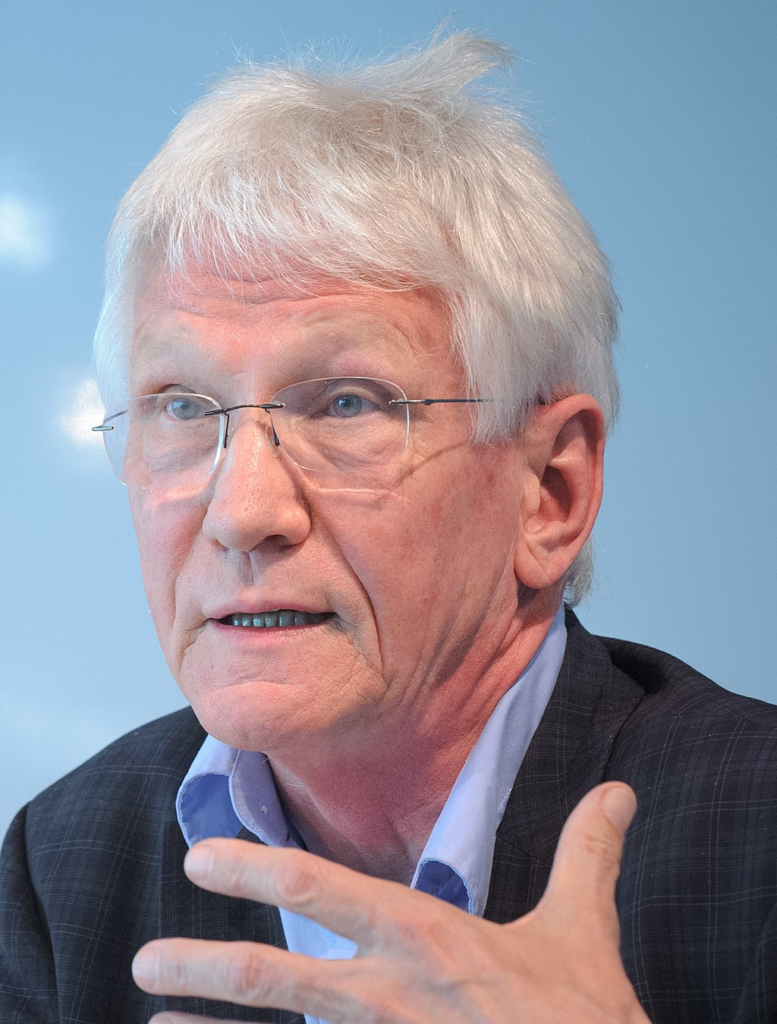
Director of the Karlshorst Museum, historian Jörg Morré told to Radio Liberty that the leadership of the memorial house in Karlshorst, after the start of a full-scale war in Ukraine, canceled the traditional “Museum Holiday” on May 8 and 9. After the unification of Germany and the collapse of the USSR, the museum was renamed and became known as “German-Russian” and closely cooperated with the Russian Embassy. This has now led to a problem with his image. However, already in November 2021, after the ban in Russia of the partner organization Memorial, the museum in Karlshorst changed its direction as a historical institution. On February 24, 2022, the museum management condemned the state policy of the Russian Federation. According to Morre, Russia is politicizing its participation in the victory over Nazi Germany, and this cannot be tolerated in silence.
Previously, Soviet tunics and caps were perceived as harmless folklore, but now the museum has banned them on its territory, as well as St. George ribbons, including on wreaths. This time it was quiet around the museum, only people came to lay flowers at the commemorative tank. “Individual commemoration is acceptable,” says Morre, “but we refuse to be a tool of Russian propaganda.”

After the start of the war, the museum management removed the flags of Russia, Belarus and Germany from the flagpoles, leaving only the flag of Ukraine. On February 21 this year, a statement condemning the war, words of solidarity and support for Ukraine was published on its website. The statement said: “The museum’s multilateral cooperation has changed irrevocably. Dialogue with Russian institutions has long been difficult as they increasingly misused the history of World War II for their own purposes. Since 2014, the Russian government has been using history to propagate a war of aggression… On this basis, we do not see any possibility for dialogue.”
In addition, the museum in Karlshorst helps Ukrainian museums to preserve the national heritage. “We support about 50 museums, memorial sites and archives, helping them defend their collections from Russian attacks, repair buildings and create replicas,” the museum says, calling the destruction of Ukrainian cultural institutions and the theft of Ukrainian cultural property a crime against international law.
In the run-up to Liberation Day, the museum hosted an event where scientists and members of the public debated about memory abuse. Iryna Shcherbakova, head of the board of the Memorial educational center, took part in the podium discussion.
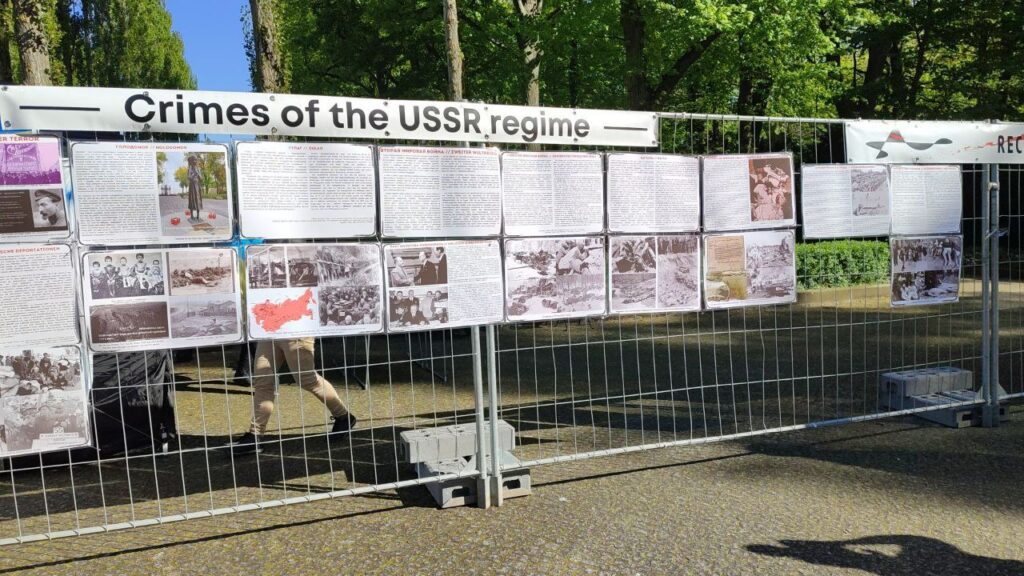
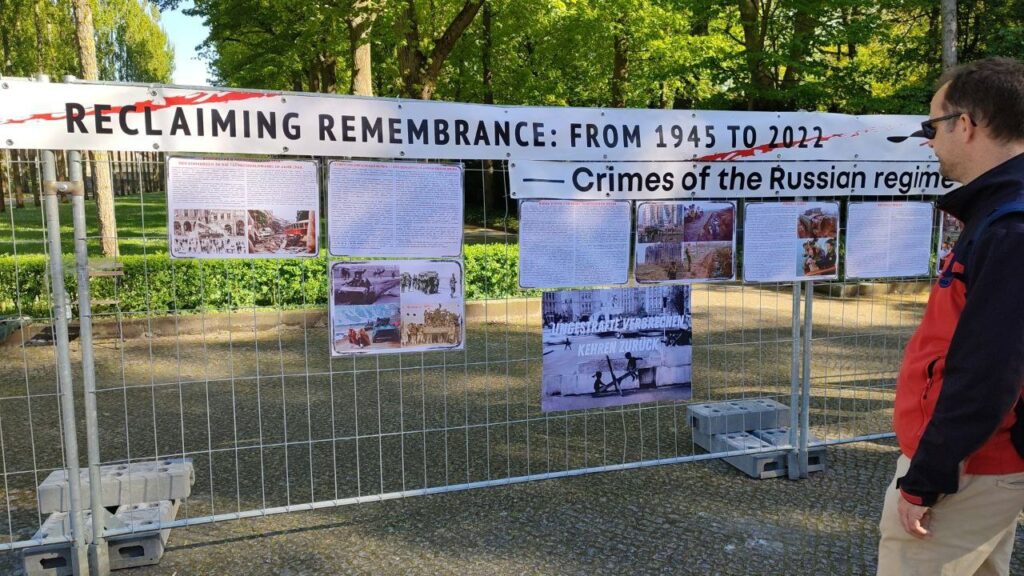
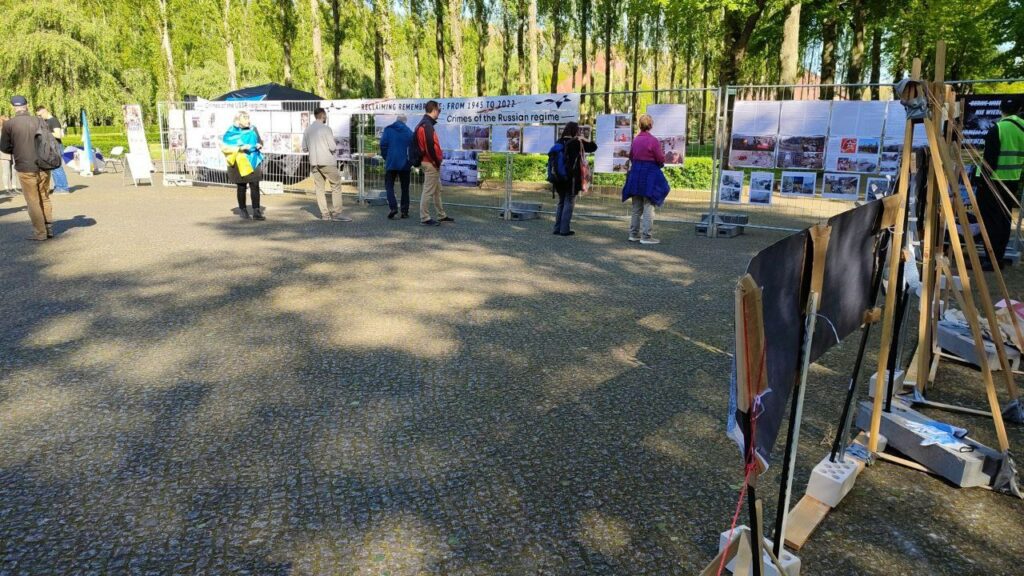
From the beginning of 2014, the Russian government has been using history in the most ugly way to propagate a war of aggression.
Claudia Roth
Claudia Roth, Commissioner for Culture of the German Government, stated the same thing on May 8, noting that “Putin uses memory in the most ugly way to propagate a criminal offensive war.” The Alliance 90/The Greens politician also stressed: “This important date for the Allied victory marks the end of the war of annihilation launched by Germany, which brought unbelievable suffering and destruction to Europe. It also means the end of the crime against humanity, the Holocaust, for which Germany is still responsible.”

According to Claudia Roth, Putin’s Russia, with its war of aggression, takes away from people not only their lives and homes but also tries to take away their original culture from them. “We must strongly oppose this. May 8 symbolizes the daily struggle for peace, freedom, democracy and self-determination in our common united Europe,” the Commissioner for Culture stated. It was and remains important for Roth not to lose the memory of this in the future. For this, the German government is making every effort, including funding the museum in the Karlshorst district.
“It is impossible to celebrate the victory over Nazi Germany together until the Russian state officially admits its guilt and repents for the current crimes“
Jörg Morre
Now the museum has begun reviewing and reworking the exhibition, which will be supplemented with materials from recent years, including facts about Russian aggression in Ukraine. Together with the Ministry of Foreign Affairs and the Ministry of Defense of Germany, Claudia Roth is preparing a change in the structure of NGOs, which lies at the heart of the museum. The scientific council of the museum will also be reformed. Historical research will also include a narrative analysis of the past in the states formed after the collapse of the Soviet Union.
Critical discussions are planned called “History in Conflict” about the war and the occupation of Eastern Europe by Soviet troops, which led to the creation of socialist dictatorships. “The full-scale war of Russia will always stand between the victims of the Second World War and the current memory of them. It is impossible to celebrate the victory over Nazi Germany together until the Russian state officially admits its guilt and repents for the current crimes. In the meantime, Russian symbols need to take a break,” says Jörg Morre.
According to the psychologist Sabina, it is necessary to separate the current Russia from the Soviet Union. Jörg Morré notes: “It is wrong that only “Russians” figured in the German analysis of historical events. Now we need to work on clarifying the semantics”
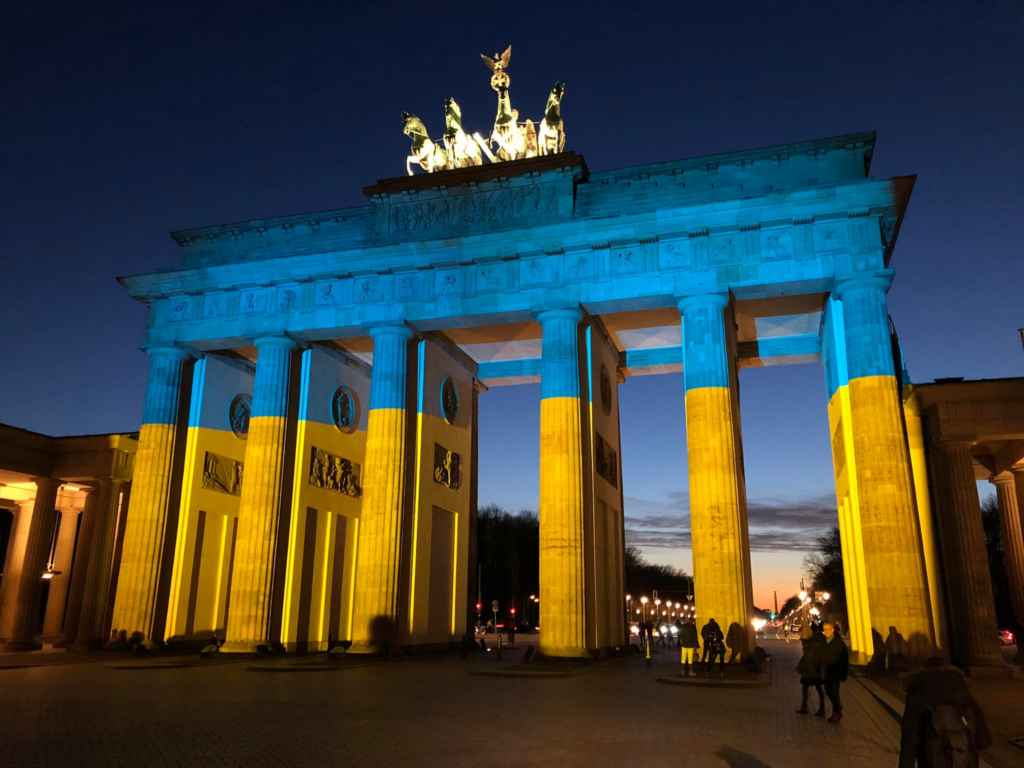
Jörg Morré believes that Russia will not be excluded from the general discourse of the memory of the Second World War, but it will always be mentioned not only as a victim and winner but also as a country that unleashed the war of aggression against Ukraine.
Source: Radio Liberty
